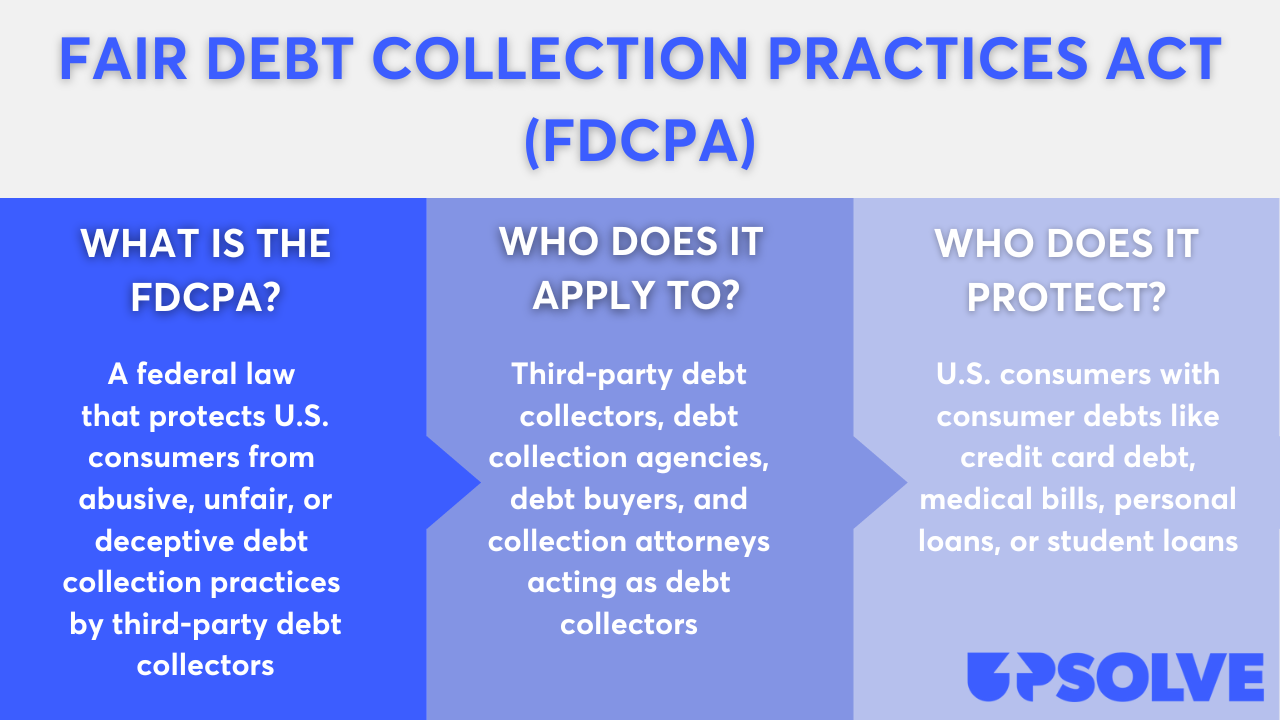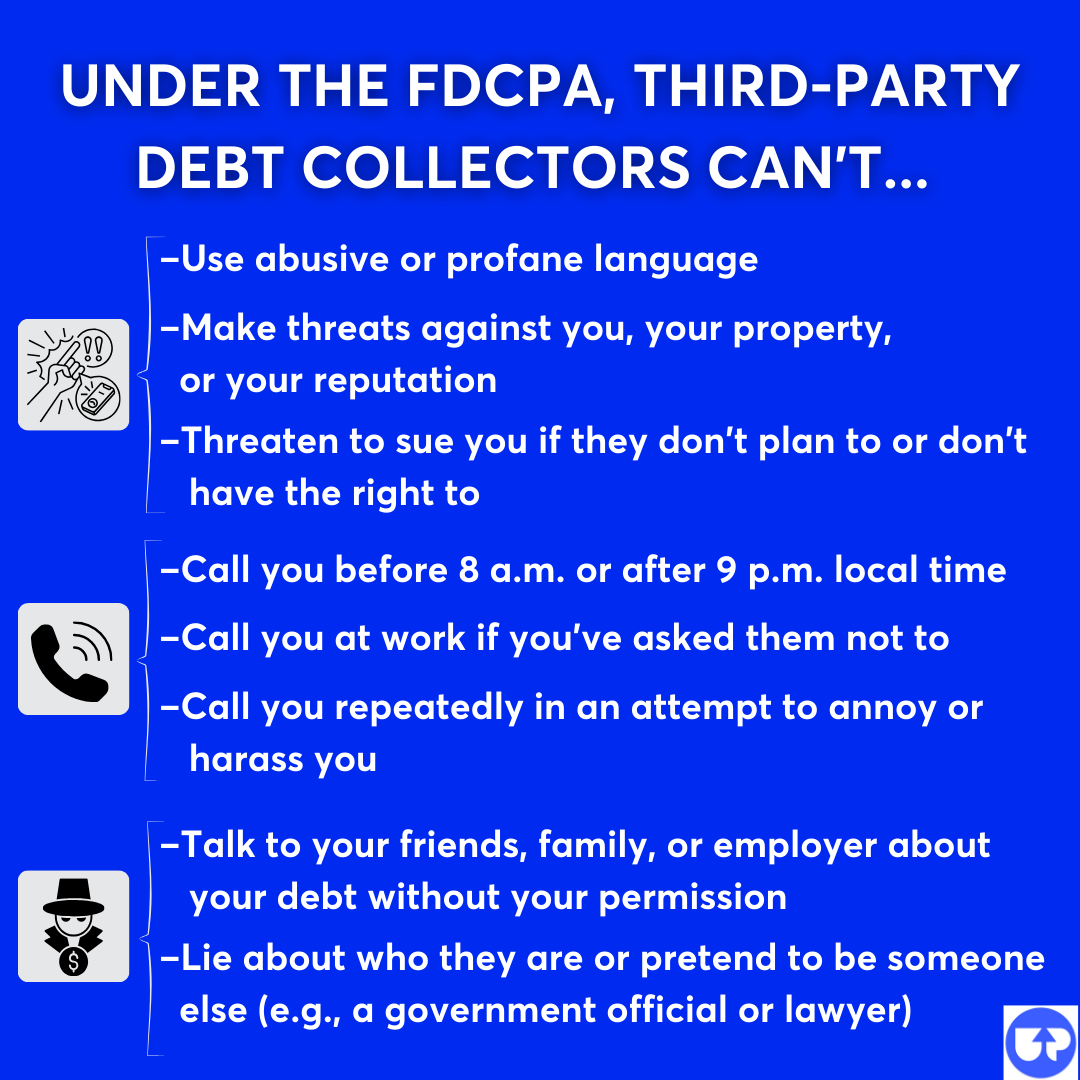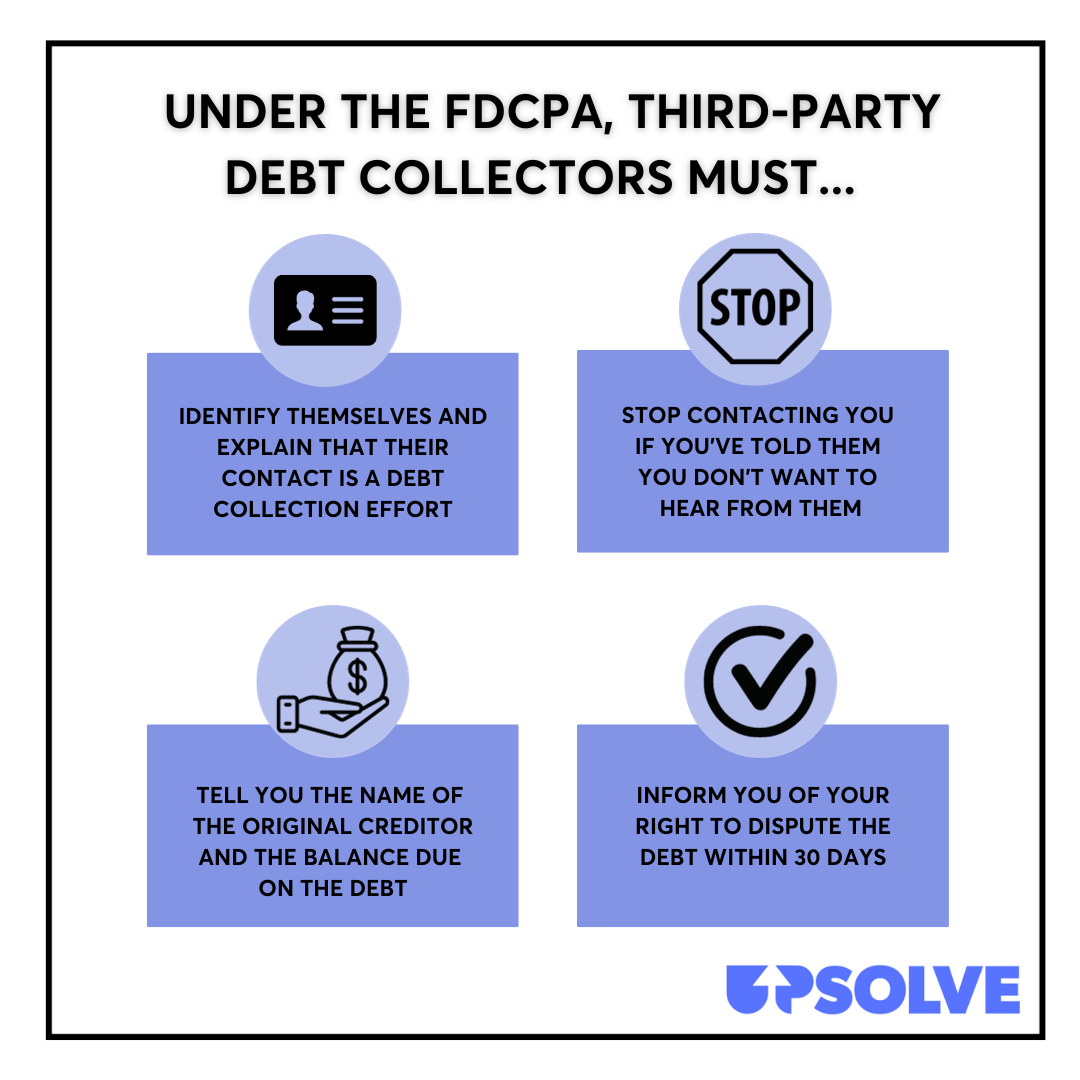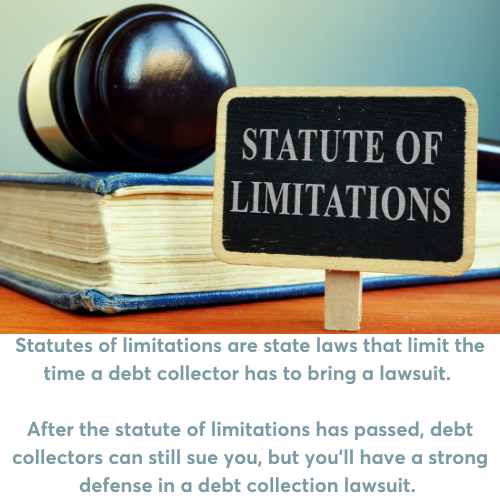Debt Collection Laws in Virginia: Know Your Rights
Upsolve is a nonprofit that helps you eliminate your debt with our free bankruptcy filing tool. Think TurboTax for bankruptcy. You could be debt-free in as little as 4 months. Featured in Forbes 4x and funded by institutions like Harvard University — so we’ll never ask you for a credit card. See if you qualify →
Virginians dealing with debt collectors are best protected by the federal Fair Debt Collection Practices Act. Though there are state laws that help regulate consumer sales and financial organizations, Virginia doesn’t have broad debt collection protections in place. One exception is a state statute that prohibits debt collectors from creating or using paperwork made to look like official legal documents. This is a criminal offense in Virginia.
Written by Upsolve Team.
Updated September 2, 2025
Table of Contents
What Are the Debt Collection Laws in Virginia?
If you live in Virginia, your strongest form of protection against bad debt collector behavior is the federal Fair Debt Collection Practices Act (FDCPA). There is also a Virginia law that prohibits anyone from using fake documents made to look like official legal paperwork when trying to collect a debt.
How Does the FDCPA Protect Virginians?
The FDCPA mainly aims to prevent debt collector harassment or deception and to establish certain rights for consumers dealing with debt collectors.
Here’s an overview of the law:

Under the FDCPA there are certain things debt collectors can’t do, including:

The FDCPA also outlines certain requirements or things debt collectors must do, including:

You can learn more about this important federal law in Upsolve’s Guide to the FDCPA.
What State Laws Protect Virginians?
Virginia has a unique law designed to protect its residents from a specific deceptive and misleading tactic in debt collection: making documents that resemble official legal papers. This is outlined in Title 18.2 of the Virginia state code. If debt collectors violate this law, they face a Class 4 misdemeanor, which is a criminal charge.
Virginia also has consumer protection laws, including the Virginia Consumer Finance Act (VCFA) and the Virginia Consumer Protection Act (VCPA). The VCPA primarily regulates consumer transactions at the point of purchase, so it doesn’t apply to debt collectors.
There is some legal gray area when it comes to the VCPA. Some legal experts believe that this law may apply to original creditors. This is important because the FDCPA does not apply to original creditors, only to third-party debt collectors. If you think an original creditor or lender has harassed you or engaged in deceptive practices to try to collect a debt, you may want to get legal advice if you’re thinking of bringing a lawsuit against them.
What Can You Do if a Debt Collector Breaks the Law in Virginia?
The main debt collection law that protects Virginians is the federal FDCPA. If a debt collector violates the FDCPA, you can file a complaint against them and/or file a lawsuit against them for damages.
File a Complaint
The FDCPA is a federal law. It’s enforced primarily by two federal agencies: the Consumer Financial Protection Bureau (CFPB) and the Federal Trade Commission (FTC). It’s easiest to start by filing a complaint with the CFPB. If they can’t help you, they’ll refer your complaint to the FTC. The CFPB’s online complaint process is fairly simple and straightforward.
If you have a deceptive document you believe violates the Virginia law, you can file a complaint with the Virginia Office of the Attorney General. You may also want to consult with a lawyer. Many lawyers offer a free consultation and can help you evaluate if you have a strong case against the debt collector.
File a Lawsuit
You have the right to sue debt collectors who violate the FDCPA in federal court. If you win the lawsuit against them, the judge may award you money for actual damages and statutory damages. Actual damages help compensate you for any money you lost as a result of the debt collector’s harassment or deception. Statutory damages are an additional award of up to $1,000. If you win, you can also get your legal fees and court fees covered.
Upsolve Member Experiences
3,970+ Members OnlineWhat Is the Statute of Limitations for Debt Collection in Virginia?
Every state has a statute of limitations for debt collection. This outlines the time a debt collector has to pursue you in court for an unpaid debt.

The timeline is different for different kinds of debt contracts. Here’s the statute of limitations timeline for the most common types of debt:
| Type of Debt | Statute of Limitations |
|---|---|
| Credit Card | 5 years |
| Medical Bills | 5 years |
| Personal Loans | 5 years |
| Mortgages | 5 years |
| Auto Loans | 4 years |
What Can Debt Collectors Do To Collect Debt in Virginia?
Thanks to the FDCPA, debt collectors cannot engage in many unfair practices when trying to collect a debt, but they still have plenty of options.
Typically, debt collectors start by calling you or sending you notices in the mail. If you’re past due on a car loan, they may even try to repossess your vehicle.
You have the right to ask debt collectors to stop contacting you. Be aware, though, if you do this, the situation can escalate, and the debt collector might take you to court.
It’s fairly common for debt collectors to sue people. They’re hoping you won’t fight the lawsuit so they can win without having to prove that you owe the debt. If they do win, they can get a court order that allows them to garnish your paycheck. If you aren’t getting a paycheck, they may be able to take funds directly from your bank account instead or put a lien on any property you own.
This is why it’s crucial to respond to the lawsuit if you get sued. Many people don’t respond because they can’t afford to hire a lawyer to represent them. But you don’t have to hire a lawyer to respond successfully. You can do it on your own.
📌 If you want help responding to the debt lawsuit but you can't afford a lawyer, consider using SoloSuit, a trusted Upsolve partner. SoloSuit has helped 280,000 respond to debt lawsuits and settle debts for less. They have a 100% money-back guarantee, and can make the response process less stressful and quicker!
Need Help With Debt Relief? Here Are Some Options
25% of Virginians have at least one debt in collections. You may be surprised to learn this is on par with the national average. So if you’re struggling with past-due debt, you are not alone.
If you’re worried about a debt going to collections or you’re trying to figure out how to deal with debt in collections, the good news is that you have some options. A great place to start is by setting a free appointment with a credit counselor. Nonprofit credit counseling agencies were designed to help individuals make a plan to deal with their debt. Upsolve can connect you with a nonprofit credit counselor for a free consultation.
A credit counselor may suggest a debt management plan to streamline your repayment process. They can even negotiate your payment or interest rate with your creditors. They might also suggest debt consolidation to combine all your debts into one, hopefully with a lower interest rate and/or monthly payment.
Bankruptcy is another option they’ll discuss with you if it’s appropriate for your situation. While many people fear the repercussions of bankruptcy, those who file often say they feel tremendous mental relief. And they use their fresh start to start rebuilding their credit score and finances. Upsolve has helped 300,000 people discharge over $700 million by filing Chapter 7 Bankruptcy. See if you qualify for free help today.
